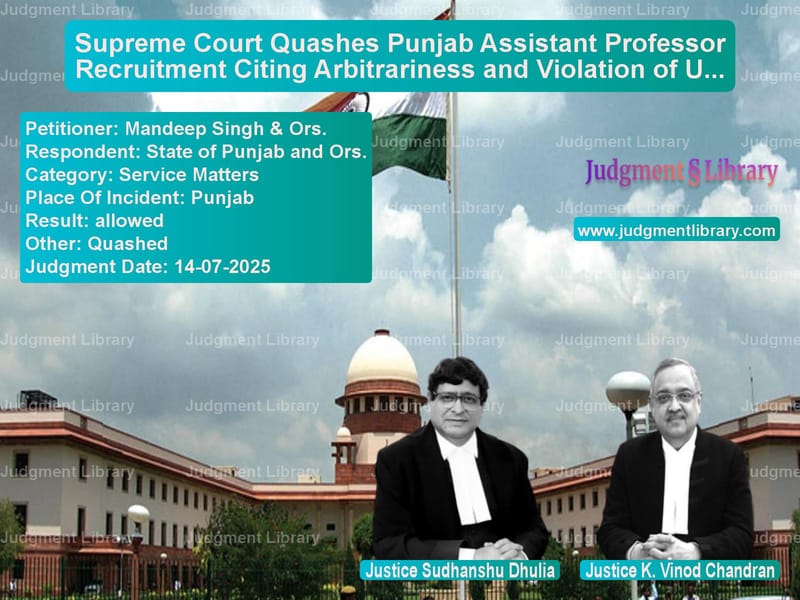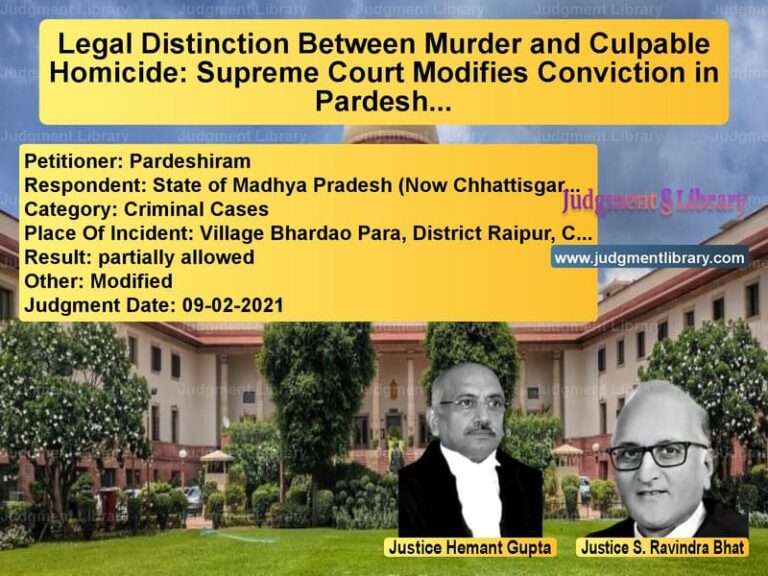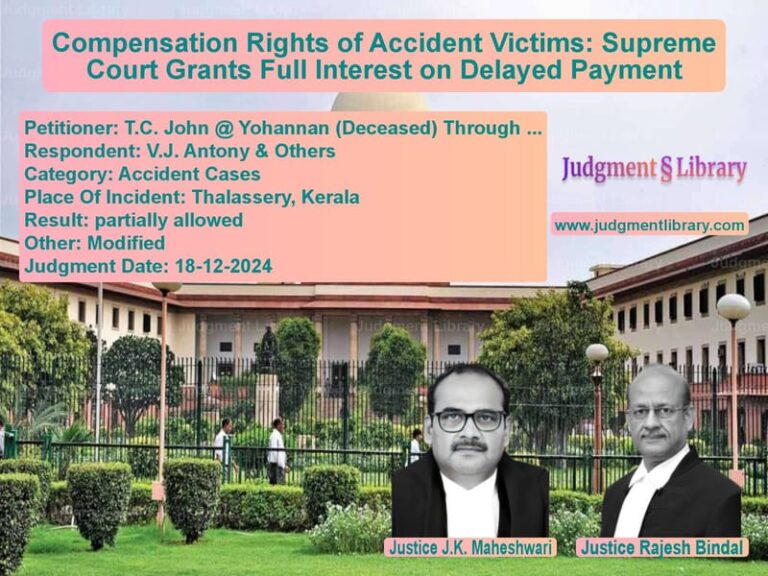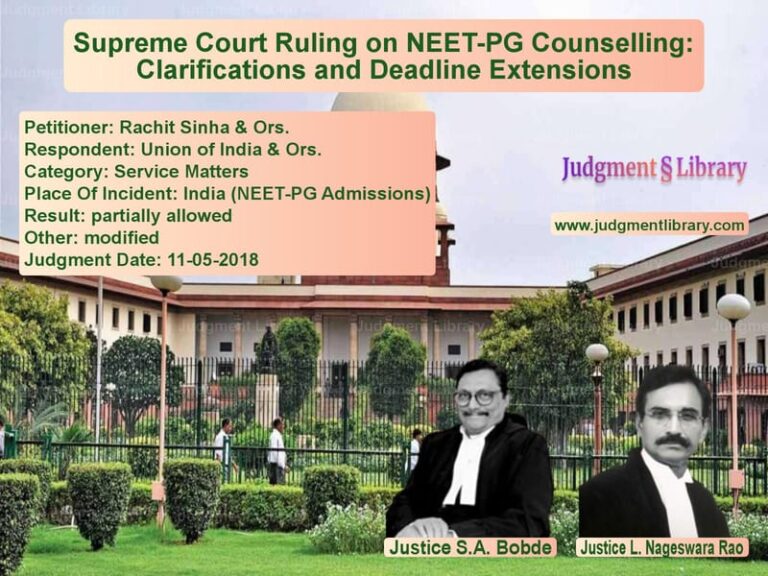Supreme Court Quashes Punjab Assistant Professor Recruitment Citing Arbitrariness and Violation of UGC Norms
In a significant judgment that reinforces the importance of due process in public appointments, the Supreme Court of India has quashed the recruitment of over 1,000 Assistant Professors and Librarians in Punjab government colleges. The case involved serious allegations of arbitrariness, political expediency, and violation of established educational standards in a rushed recruitment process conducted just before state assembly elections.
The legal battle began when the Punjab government decided to bypass the Punjab Public Service Commission (PPSC) and conduct recruitment through departmental selection committees using a simplified multiple-choice question test, abandoning the comprehensive selection process prescribed by University Grants Commission (UGC) regulations. This decision affected 1,091 posts of Assistant Professors and 67 posts of Librarians in government degree colleges across the state.
The appellants, represented by senior advocates including Mr. Raju Ramchandran and Mr. Nidhesh Gupta, argued that “the recruitment process was vitiated on more than one count. Most importantly the recruitment was made in violation of UGC Regulations of 2010 which were adopted by the State of Punjab on 30.07.2013, and which mandated an entirely different criterion and procedure for recruitment.” They contended that “the entire process is arbitrary and was followed not in the interest of the State or for the cause of higher education but for narrow political gains.”
The State of Punjab and private respondents, represented by senior advocates including Mr. Kapil Sibal and Mr. Rakesh Dwivedi, defended the recruitment process. They argued that “Article 320(3) is directory and not mandatory in nature” and that “the State government is empowered to decide its own method and procedure of recruitment for the posts of Assistant Professors and Librarians in Degree colleges under the State government; and it is not bound to make these selections through the Commission.”
Constitutional Importance of Public Service Commissions
The Supreme Court delved deep into the historical and constitutional significance of Public Service Commissions, tracing their evolution from the British era to their establishment as constitutional bodies under independent India’s Constitution. The Court emphasized that “Impartiality, fairness and recognition of merit while selecting Public Servants are absolutely necessary in modern democracies. The basic purpose of a Union Public Service Commission or State Public Service Commission(s) for that matter, is to remove impartiality and political influence while making selection on Public Posts.”
The Court noted that during Constituent Assembly debates, Dr. P.S Deshmukh had highlighted that “…these Commissions are said to be a necessity of a modern State. These Commissions are primarily meant to keep appointments away from day to day politics, party preferences and influences and the attempt is made, by having recourse to these Commissions, that the appointments shall be as far as possible on merit.”
Violation of Established Procedures
The judgment meticulously examined how the Punjab government bypassed established procedures. The Court noted that the posts of Assistant Professors and Librarians were within the purview of the PPSC as per the Punjab Public Service Commission (Limitation of Functions) Regulations, 1955. The procedure for excluding posts from the Commission’s purview required consultation with the Commission and approval from the Council of Ministers, which wasn’t followed.
The Court observed that “the respondents have tried to meet this deficiency by stating that the State had amended the 1955 Regulations in March 2022 (by retrospective effect), by mentioning these posts in the 1955 Regulations and these posts were then taken out from the purview of Commission. All the same, we are unable to accept this argument inasmuch as the amendment was made after concluding the entire recruitment process and giving appointment letters to the selected candidates. It was hence a post facto exercise.”
Arbitrary Change in Selection Process
One of the most significant aspects of the case was the complete overhaul of the selection methodology. The UGC Regulations of 2010, which had been adopted by Punjab, prescribed a comprehensive selection process including assessment of academic record and research performance (50%), domain knowledge and teaching skills (30%), and interview performance (20%). This was replaced with a simple multiple-choice question based written test.
The Court strongly criticized this change, stating that “The recruitment for teaching posts in higher education on the basis of scores in an objective type written test, on grounds that such a test is non arbitrary whereas viva voce and appreciation of other aspects such as academic work could be abused and could be unfairly applied, is an argument which is puerile to say the least.”
The Court further elaborated that “Abandoning a time tested and uniformly followed method of selecting Assistant Professors in higher education with Multiple-Choice Questions based written examination is unacceptable; especially when the State itself has adopted the selection process laid down by the expert body which is also the apex statutory body, the UGC constituted under Entry 66 in the Union List of the Seventh Schedule of the Constitution.”
Political Expediency and Burning Haste
The timing and speed of the recruitment process raised serious questions about the government’s motives. The Court noted that the entire process – from advertisement to appointment letters – was completed in just two months, coinciding with the state assembly elections.
The Court referred to its earlier judgments, noting that “when a thing is done in a post-haste manner, mala fides would be presumed, and further that anything done in undue haste can also be termed as arbitrary and cannot be condoned in law.” Quoting from Fuljit Kaur v. State of Punjab, the Court emphasized that “Making the allotment in such a hasty manner itself is arbitrary and unreasonable and is hit by Article 14 of the Constitution.”
The judgment observed that “One cannot fail to notice the burning haste with which this entire exercise was undertaken by the powers that be. It has thus been repeatedly pressed by the appellants that all this was motivated by political exigency in the form of the impending Assembly elections in the State of Punjab.”
Binding Nature of UGC Regulations
The Court extensively discussed the legal status of UGC Regulations, noting that they are made under the UGC Act enacted by Parliament under Entry 66 of List I (Union List) of the Seventh Schedule, which deals with “Co-ordination and determination of standards in institutions for higher education.” The State’s power under Entry 25 of List III (Concurrent List) is subject to Union power under Entry 66.
The Court cited Gambhirdan K. Gadhvi v. State of Gujarat, where it was held that “UGC Regulations have a mandatory character and are binding on all universities, State or Central, that have opted to receive the financial assistance of the UGC.” The Court further noted that “UGC Regulations are made under UGC Act which was enacted by Parliament under Entry 66 of List I of the Schedule VII, whereas State Governments exercise powers under Entry 25 of the List III of the Schedule VII to make laws relating to ‘education’. Further, it is to be noted that Entry 25 of the List III is subject to Entry 66 of List I.”
Fundamental Principles of Administrative Law
The judgment reinforced several fundamental principles of administrative law and constitutional governance. The Court emphasized that “The State and its instrumentalities have a duty and responsibility to act fairly and reasonably in terms of the mandate of Article 14 of the Constitution. Any decision taken by the State must be reasoned, and not arbitrary.”
Quoting from Ramana Dayaram Shetty v. International Airport Authority of India, the Court reiterated that “Government jobs are also a kind of wealth and the State cannot distribute or withhold such wealth on the basis of arbitrary principles.” The Court further stated that “The power or discretion of the Government in the matter of grant of largesse including award of jobs, contracts, quotas, licences, etc. must be confined and structured by rational, relevant and non-discriminatory standard or norm.”
Conclusion and Directions
While acknowledging that quashing the recruitment would cause hardship to selected candidates, the Court held that “there is no equity in the favour of selected candidates as challenge to the recruitment was made during the pendency of the process and appointments were subject to the Court orders. A gross illegality like the present recruitment cannot be ignored.”
The Supreme Court allowed the appeals, set aside the High Court’s order, and quashed the entire recruitment process. The Court directed the State to “initiate the recruitment process as per the 2018 UGC Regulations which are now in force in the State of Punjab.”
This landmark judgment serves as a powerful reminder that constitutional bodies and established procedures cannot be bypassed for political convenience. It reinforces the principle that public appointments must be made through fair, transparent, and merit-based processes that uphold the standards of higher education and maintain public trust in administrative actions.
Petitioner Name: Mandeep Singh & Ors..Respondent Name: State of Punjab and Ors..Judgment By: Justice Sudhanshu Dhulia, Justice K. Vinod Chandran.Place Of Incident: Punjab.Judgment Date: 14-07-2025.Result: allowed.
Don’t miss out on the full details! Download the complete judgment in PDF format below and gain valuable insights instantly!
Download Judgment: mandeep-singh-&-ors.-vs-state-of-punjab-and-supreme-court-of-india-judgment-dated-14-07-2025.pdf
Directly Download Judgment: Directly download this Judgment
See all petitions in Recruitment Policies
See all petitions in Public Sector Employees
See all petitions in Employment Disputes
See all petitions in Education Related Cases
See all petitions in Fundamental Rights
See all petitions in Judgment by Sudhanshu Dhulia
See all petitions in Judgment by K. Vinod Chandran
See all petitions in allowed
See all petitions in Quashed
See all petitions in supreme court of India judgments July 2025
See all petitions in 2025 judgments
See all posts in Service Matters Category
See all allowed petitions in Service Matters Category
See all Dismissed petitions in Service Matters Category
See all partially allowed petitions in Service Matters Category







